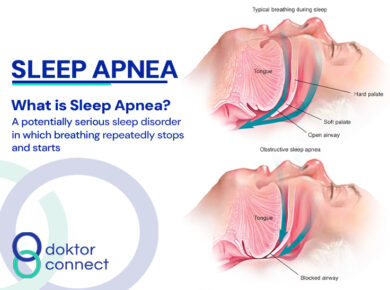Peptic Ulcer refers to both stomach and duodenal ulcer (the duodenum is a part of the intestine). Ulcer means different things to different people. For some, it may mean a non-healing injury (which can be correct) whereas for others it is that disturbing pain in the upper belly they are referring to.
Read along as we dig deeper into this intriguing common health diagnosis
What Exactly is Peptic Ulcer?
Peptic ulcer occurs where the lining of the stomach or duodenum is damaged by the acid made in the stomach and subsequently the underlying tissue is exposed.
Even though the rate of simple gastric ulcers is in decline globally, the incidence of complicated ulcers has remained stable partly due to concurrent use of medications such as Non-Steroidal Anti-inflammatory Drugs (NSAIDs) and the aging population.
What Causes This Disease?
Peptic Ulcer Disease may be due to any of the following:
1. H pylori Infection
- Helicobacter pylori (commonly just called H. pylori) is a bug that infects the lining of the stomach and duodenum. Over half the world’s population has it, however, it is usually harmless for most people. It is more common in developing countries such as Nigeria.
- H. pylori bacteria may be passed from person to person through direct contact with saliva, vomit or fecal matter. H. pylori may also be spread through contaminated food or water
- It breaks down the stomach’s defense against the acid it produces to digest food, allowing the stomach lining to become damaged and an ulcer to form.
- Helicobacter pylori (H. pylori) infection is associated with about 95% of duodenal ulcers and 80% of gastric ulcers. It is also known to be a cause of bad breath
2. Non Steroidal Anti-Inflammatory Drugs (NSAIDs)
- In addition to the above, chronic use of these medications such as Ibuprofen, Aspirin, Diclofenac, etc. disrupts the lining of the stomach making it more vulnerable to injury.
3. Harmful Lifestyle Practices
- Smoking increases one’s risk of developing stomach ulcers and may make treatment less effective whereas alcohol may make one’s symptoms worse.
- In addition, the use of crack cocaine causes the blood vessels to constrict resulting in reduced blood flow and leading to damage of the lining of the stomach and intestine
4. Severe Physiological Stress
This can be due to:
- Burns Injury
- Trauma involving the brain
- Multiple traumatic injuries
- Surgery
- Serious systemic illness such as sepsis (overwhelming infection)
They cause a reduced gastric pH and similarly cause a high gastric acid output and an increased risk of ulceration
5. Genetics
More than 20% of individuals usually have a family history of ulcers
Common Symptoms
- Abdominal pain- Usually at the upper belly (epigastric) region. A posterior ulcer may cause pain radiating to the back
- Nausea
- Oral flatulence i.e belching
- Bloating
- Distension
- Heartburn
You should speak to a doctor if you notice any unusual symptoms. Investigations may be ordered such as H pylori testing and in complicated cases, endoscopy (a camera test) may be required
How To Manage and Prevent Peptic Ulcer
1. Avoid Long term use of NSAIDs
If medication such as NSAIDs is the cause then they should be stopped or replaced. Otherwise, additional protective medications may be prescribed in addition to taking them after meals.
2. Avoid smoking and recreational drug use
Smoking increases the risk of peptic ulcers and delays healing as well as opposing the action of medications used to treat peptic ulcers.
3. Medication to Eradicate H pylori Infection
If one’s Hpylori test is positive, Eradication therapy is also prescribed. It usually involves three medicines – two antibiotics and an acid-suppressing medicine.
Moreover, eradication therapy clears H. pylori in up to 9 in 10 cases if it is taken correctly for the full course. Therefore, adhere to any medication prescribed by your doctor.
4. Antacid
Antacid medication neutralizes stomach acid quickly and furthermore relieves symptoms in the short term. It can be taken when you experience symptoms or when you expect them, such as after meals or at bedtime.
5. Special diet is not indicated. However, avoid any food or beverage noticed to trigger or aggravate symptoms. Yogurt has been found to contain probiotics (good bacteria) which can then help fight Hpylori infection and relive ulcer pain. However, milk may temporarily relieve ulcer pain because it coats the stomach lining, it also causes the stomach to produce more acid and digestive juice which can make the ulcer worse
6. Finally, obesity has been shown to have an association with peptic ulcer disease. Therefore, it is important to maintain a healthy weight
In Summary
Eradication of H. pylori reduces the ulcer recurrence rate from 60-90% to 10-20%.
Importantly, the outcome is excellent if the underlying cause such as H. pylori infection or drugs can be addressed. So do not hesitate to consult with a doctor to address your health concerns timely



